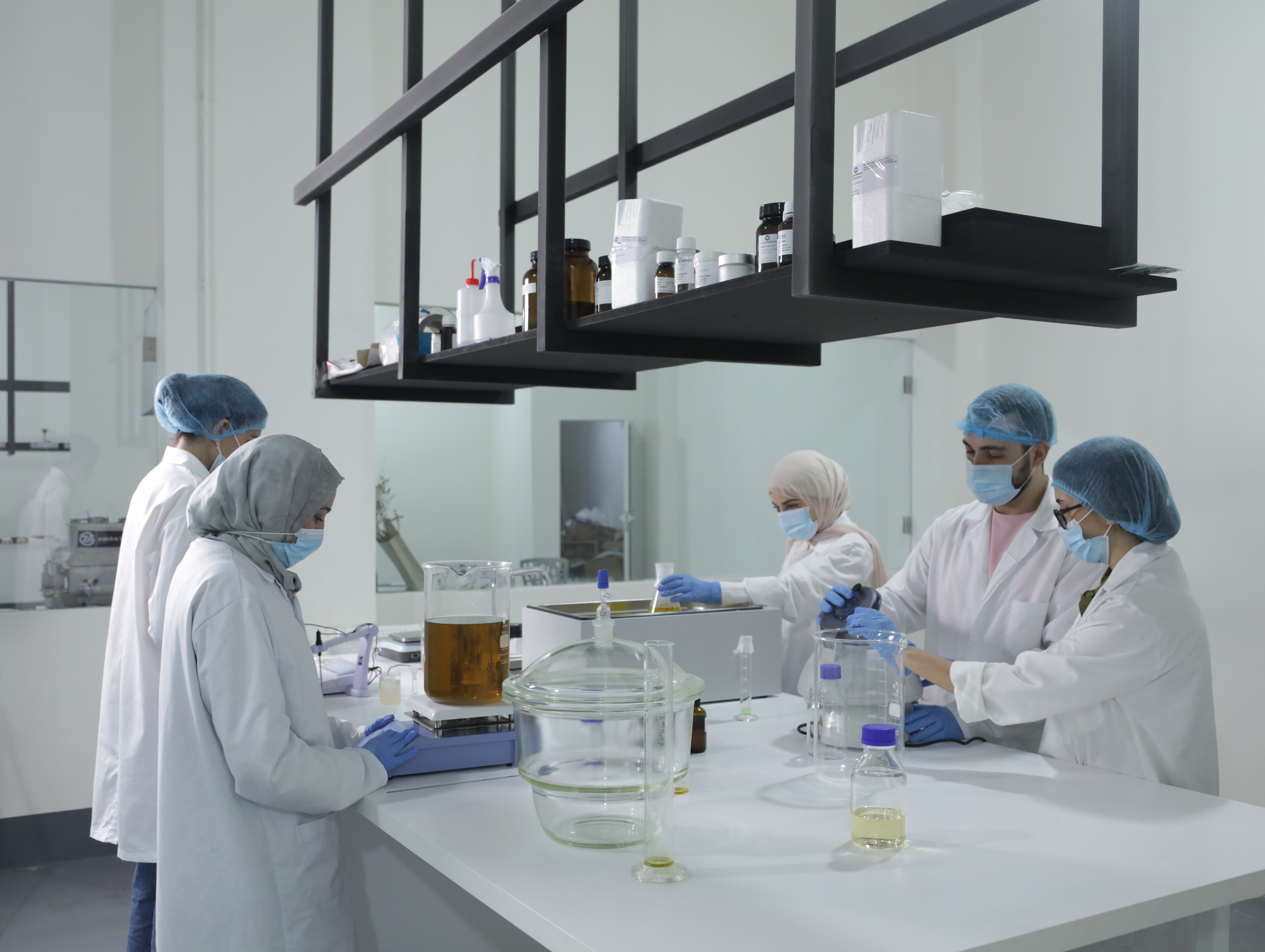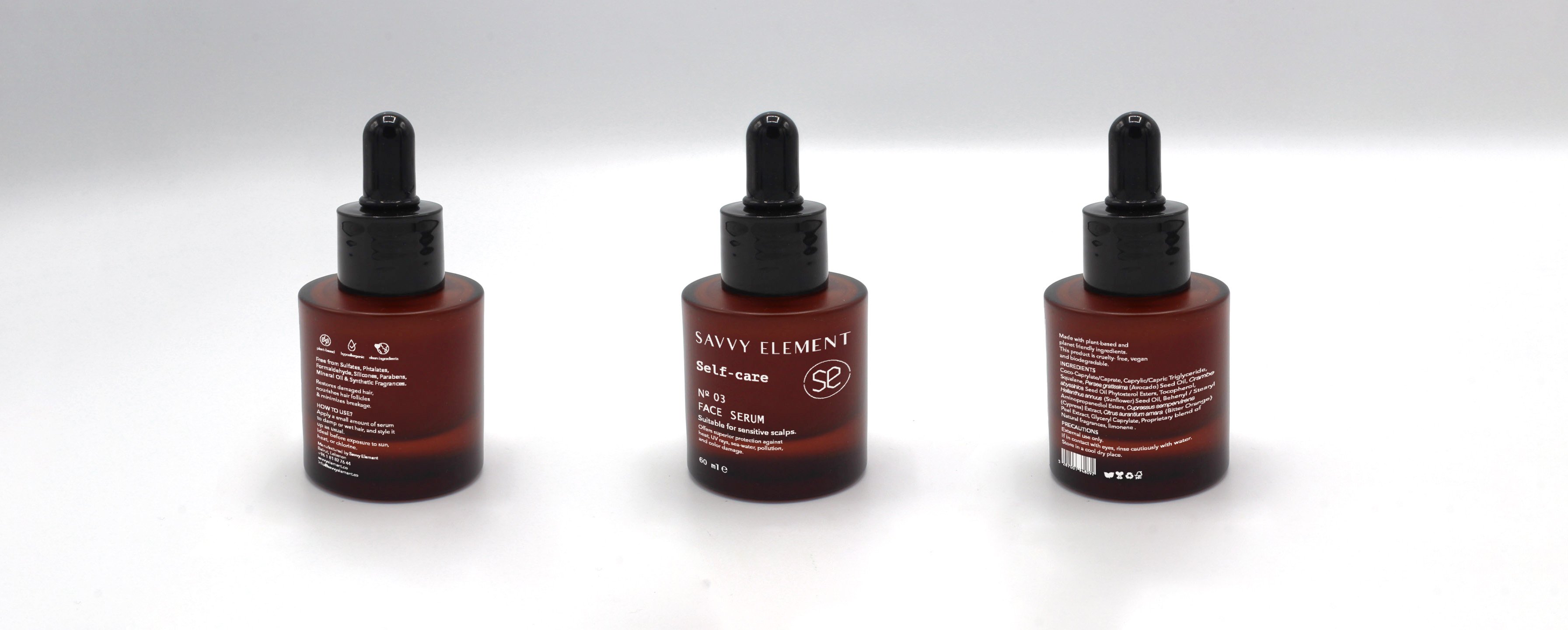
Batoul Hakim, founder of Savvy Element. (Credit: Savvy Element)
BEIRUT — In a previous life, 35-year-old chemist Batoul Hakim worked for the UN Development Program in Lebanon.
But seven years ago, she left her job to try something new.
“I wanted to do something for the country, where I can see a direct and tangible impact.”
At the same time, Hakim was undergoing a shift in her lifestyle.
“I was once told by my dermatologist that my freckles weren’t nice, and should be treated,” she says. “This made me never leave my house without foundation.”
“However, during a meditation retreat where makeup was prohibited, I received so many compliments on my freckles. This shifted my focus towards embracing natural beauty and embodying self-care with consciousness.”
She also had a growing interest in self-care and home-care products that didn’t harm the environment. “But every time I sought out an ‘eco-friendly’ product, I noticed everything was imported.”
Breaking ground
She started to experiment with making products for herself and her family.
In 2017, Hakim applied for a one-month training program in Lebanon conducted by SwitchMed, an EU-funded initiative to help entrepreneurs develop green business plans.
But without local labs and technical resources in Lebanon for product testing, she decided to look abroad. Between 2017 and 2018, she secured a research fellowship in both Berlin and the US. And by 2019, she returned to Lebanon with newfound experience and founded Savvy Element.
In the initial stages, Hakim operated on her own and showcased her products through pop-up events. She funded the initiative with her own savings.
Though natural olive oil soaps and other remedies have a long history in Lebanon, the high-end natural self-care and home-care market tends to be far pricier. “I used to think these types of products were too expensive. But once I went into the business, I figured that sourcing ethically and sustainably comes with a cost,” says Hakim.
The founder clarifies, “when it comes to eco-friendliness, people tend to focus on packaging. But beyond that, there are microplastics within the product itself, which we exclude from our formulas. All our ingredients are biodegradable
 Savvy Element's laboratory. (Credit: Savvy Element)
Savvy Element's laboratory. (Credit: Savvy Element)
Bouncing back
October 2019 brought the start of Lebanon’s economic crisis, as well as the thawra protest movement.
Savvy Elements’ supply chain faced problems as their suppliers at the time were not local. Hakim struggled with fluctuating exchange rates and access to raw materials.
The brand expanded in 2020, accumulating equipment and using an empty space in downtown Beirut's Saifi area that belonged to Hakim's friend.
But everything came to a halt on Aug. 4 that year. The Beirut port blast caused significant destruction, given that much of their equipment was glass.
After the blast, Hakim rebuilt with partial help from relief grants. Today her business has moved to a bigger space in the industrial area of Bchamoun southeast of Beirut.
Dealing with the Lebanese reality
Though Savvy Element still sources raw materials from overseas, Hakim says the business uses limited plastic to stay “green.”
The brand does not have a shop on its own. The products are available in several retail stores, pop-ups and exhibitions, primarily in Beirut and a few further locations including Dbayeh and Ain Aar.
“The advantage of having products in retail stores is that customers trust that store, and consequently, extend that trust to the products it sells,” says Hakim.
 Savvy Element's face serum. (Credit: Savvy Element)
Savvy Element's face serum. (Credit: Savvy Element)
The main current challenge Savvy Element’s four employees now face is simply dealing with the government and other administrative entities.
“For example, one of our shipments was once stopped at the port because I was told there was no inspector to check it. However, a month later, upon clearance, I learned that the delay wasn't due to the absence of an inspector but because the shipment fee was rising from LL15,000 to LL80,000.”
“These things happen every day, it’s exhausting,” Hakim adds. “You cannot plan nor budget for them, it’s scary.”
Still, according to Hakim, she’s planning on new growth strategies for the coming months, and even launching new products in 2025, despite the challenges of running a small business in Lebanon.
Could that someday mean expanding beyond Lebanon’s borders?
“We are still working on our export potential, seeking for markets we can penetrate.”
Editor's note: This article was amended on Feb. 6, 2024 to reflect that Savvy Element rebuilt after the Beirut port blast partially with relief funds. The company also produces home-care goods in addition to its self-care line.